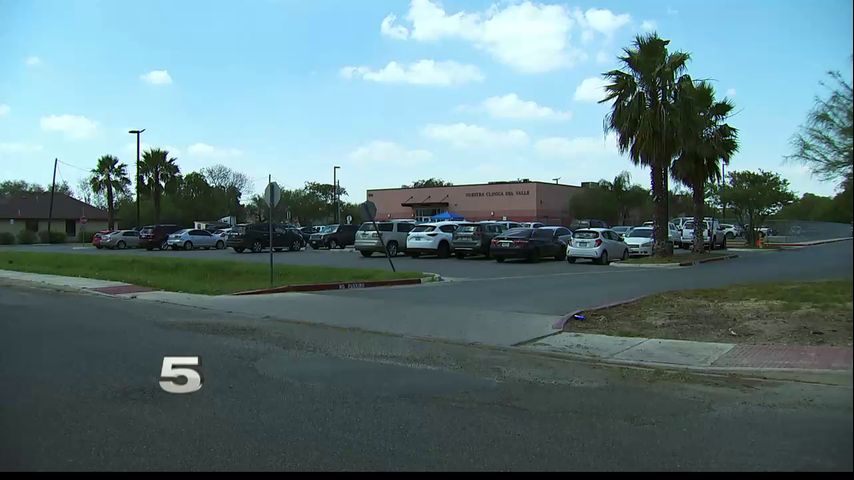Valley clinics with federal grants facing patient deficit
Health clinics in the Rio Grande Valley that received a combined $5 million in federal grants are struggling with a significant decrease in patient visits.
In April, the U.S. Department of Health and Human Services, through the Health Resources and Services Administration, awarded close to $5 million to several clinics in South Texas.
Patients have largely stayed away from clinics. "I can tell you that it's half of what we were seeing on a daily basis," Paula Gomez Executive Director of Brownsville Community Health Clinic said. They received $1.1 million from the grant.
The effects are more profound at Nuestra Clinica del Valle, or NCDV. "If we see 6,000 visits a month, right now we're down, if we're good, about 1,600," Lucy Ramirez-Torres, CEO at NCDV, said.
Nuestra Clinica del Valle is using its $1.5 million in grant money for two things.
"Part of the money that we received is going to be used for testing. The other part of the money is going to be used for staffing," Ramirez-Torres said. Gomez said the same was done in Brownsville.
Losing clients left them with a deficit said the CEO for NCDV. "Approximately I would say about 55% of our revenue is also from the patient fees that we collect," Ramirez-Torres said.
Both clinics are using the funding to offer COVID-19 testing to their current clients, though they are prioritizing the severe cases.
There's a delicate internal balancing act when allocating funds between serving the public through testing and ensuring staff is retained to perform primary care services.
"We were hoping that we would reduce the number of people who would leave their jobs because of the fear of getting COVID-19. It seems to have worked. We've had two maybe three people who have resigned," Gomez said. Nuestra Clinica del Valle also had about three to four resignations, according to the CEO.
A lack of personal protection equipment led NCDV to temporarily close and consolidate three sites – Roma, San Carlos and Mission.
Gomez and Ramirez-Torres said they've overheard concerns keeping the public away.
Some of it is due to the initial message sent out asking people to stay at home unless seriously sick. After a few weeks, the clinics tried bringing clients back assuring them they had accommodated for the separation of patients exhibiting potential COVID-19 symptoms.
A vast majority of the clients are uninsured and their immigration status unquestioned. Driving through streets patrolled by officers enforcing shelter in place orders is believed to have inadvertently created a deterrence for them. "I know that there was fear, there's always fear, when people are being stopped in the streets. It's somebody in a uniform, so that fear is there. That, I have heard," Gomez said.
Those who relied on public transportation may have also been dissuaded from boarding busy buses.
Clinics are offering medical visits online. Ramirez-Torres said over 60-percent of their visits are conducted this way. Brownsville also provides this alternative. The problem is reaching disenfranchised communities with this message.
Promotoras, clinic employees, who normally conduct outreach visitations are having to re-engineer their strategy. They're trying to observe social distancing while continuing to educate the public on healthcare access amid this pandemic.
Communication efforts extend to phone calls, but as Gomez said, "it's very difficult to reach 20,000. We don't have enough staff to do that."
Should they find a way to successfully share their message, they face another hurdle. It was a concern expressed by the executive director for the Community Action Corporation of South Texas that received nearly $870,000 in grant funding.
"We're certainly going to use that efficiently. And, we're certainly going to use that wisely. But if the supply chain is broken the money does not allow us to access the material and supplies that we need," Ann Awalt said.





